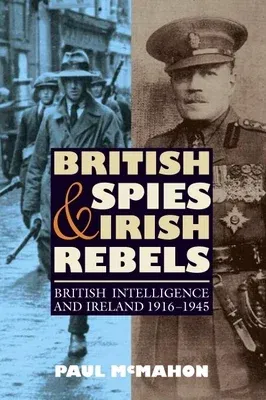Using recently opened archives, this book provides new insights into the
history of the British intelligence community and helps explain
Anglo-Irish relations during a time of momentous change. The lessons it
draws still echo today, as Britain contends with the threat posed by
violent militants, whether from Ireland or further afield.
One of the Irish Times' Books of the Year, 2008
The struggle between British intelligence agencies and Irish
revolutionaries has lasted for centuries - and still goes on. But it was
at its most intense during the first half of the twentieth century.
Ireland experienced a bloody rebellion, bitter partition and a
stuttering march towards independence. Britain grappled with imperial
decline and world war, while government agencies were worrying about
being stabbed in the back by their Irish neighbour. Using recently
opened archives, this book reveals for the first time how intelligence
and intelligence agencies shaped Anglo-Irish relations during this
formative period.
The book casts light on characters long kept in the shadows - IRA
gunrunners, Bolshevik agitators, Nazi saboteurs, British double agents.
It shows what happened when Irish revolutionaries stopped fighting,
formed governments and started sharing information with London - while
doing everything possible to hide this from the Irish public. It also
fills in a missing chapter in the history of the British intelligence
community, tracing its evolution from amateurishbeginnings, through a
painful adolescence, to the sophisticated apparatus that is largely
still with us.
The book probes some deeper questions about intelligence and the complex
Anglo-Irish relationship. What has the most influence on government
policy? The work of professional intelligence agencies? Or the
misconceptions and preconceptions that politicians and civil servants
bring to their jobs? Why are secrets so seductive - and sometimes so
misleading?
Packed with anecdotes and unexpected paradoxes, this book provides new
insights into the history of the British intelligence community and
helps explain the twists and turns of Anglo-Irish relations during a
time of momentous change. The lessons it draws still echo today, as
Britain contends with the threat posed by violent militants, whether
from Ireland or further afield.
PAUL MCMAHON received his bachelor's degree from University College
Dublin, before studying for an MPhil and a PhD at Cambridge University.
He has worked as a management consultant and policy advisor focussing on
climate change and food security.

